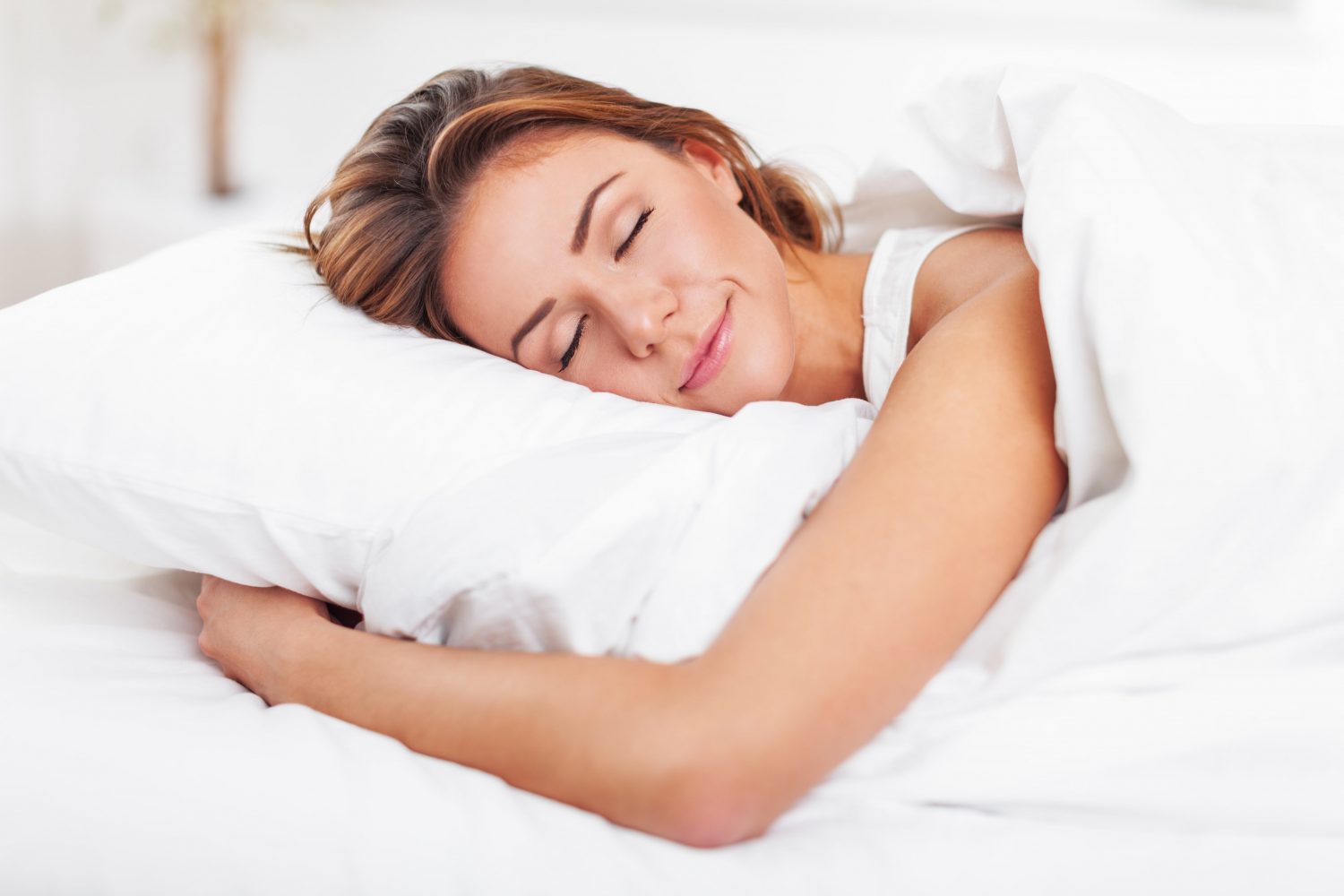An estimated 68% of Americans, 164 million people, report struggle falling asleep at least once a week. Lack of sleep can have severe consequences for your mental health, physical health, increase the risk of accidents and make you feel less able to take in new information. Continuous problems with sleep can have long-term health consequences such as an increased risk of diabetes, heart conditions and high blood pressure.
Don’t ignore sleep issues. Address the problem head-on with these seven tips for a better night’s sleep.
1) Stick to a Consistent Sleep Schedule
Many people will stay up late or sleep in on weekends. Try to avoid this as much as possible. A consistent sleep schedule helps to regulate your body’s clock. Your body’s circadian rhythm functions on a loop, usually aligning with the sunrise and sunset. Changes to your sleeping patterns can disturb these circadian rhythms and result in poor sleep.
Try to wake up and go to sleep at the same time regardless of the day of the week.
2) Exercise Daily
Countless studies have proven that daily exercise can significantly improve an individual’s quality of sleep. Intense, vigorous exercise is best as it can wear you out, but even light exercise is better than nothing.
Make sure to avoid exercising too late at night. Exercise releases adrenaline in the body and you won’t be able to settle down for sleep immediately after working out.
3) Limit Daytime Naps and Irregular Sleep Patterns
People often nap longer than they should. Research shows an ideal nap should only be 10-20 minutes. Unfortunately, most people tend to nap for much longer than this. As a result, a long nap in the afternoon can disturb your sleep schedule and leave you restless at night.
If this is a pattern you’re experiencing, shorten your naptime or consider eliminating them altogether.
4) Create a Relaxing & Comfortable Sleep Environment
Small aspects of your environment can affect how well you sleep. Evaluate your room to ensure the temperature, lighting, external noises and furniture arrangements are ideal. When you find yourself struggling to sleep at night, try to pinpoint what is disturbing you.
If the outside traffic is too loud or the room is too cold, keep fixing these factors until you have the perfect sleeping setup. Try to make your bedroom dark, quiet and relaxing as much as possible. Invest in blackout curtains, night sound machines and warmer blankets if necessary.
5) Don’t Consume Caffeine Late in the Day
Coffee has many benefits, including energizing and stimulating us. However, if consumed too late in the day, the effects of caffeine can disturb sleep. Caffeine can stay in the body for 6-8 hours, so even an afternoon cup of coffee can be harmful to your sleep.
Consider switching to decaffeinated coffee or herbal tea after 3:00 pm.
6) Limit & Avoid Alcohol Intake
People often associate alcohol, such as red wine or a nightcap, as an assistant to sleep. But this is definitely not the case. Studies have shown that alcohol can cause or increase symptoms of snoring, sleep apnea and disrupted sleep patterns.
Melatonin is a hormone that regulates the sleep-wake cycle. The body produces melatonin in the dark, so typically at night for people. The consumption of alcohol has been linked to altering nighttime melatonin production, which, as a result, can disturb the body’s circadian rhythm.
Individuals should limit or eliminate alcohol intake before bed whenever possible.
7) Don’t Eat Late in the Evening
Consuming a large or spicy meal before bed can awaken the body’s digestive system, which can make sleeping difficult. And, late-night eating can negatively impact the release of melatonin and the human growth hormone (HGH) in the body.
Try to eat your dinner approximately three to four hours before bed and only have light snacks before bed.
If these tips don’t improve your sleep issues, consult your doctor. A sleeping disorder or other health concerns may be at play.
Diamond Physicians
Diamond Physicians is a direct primary care clinic operating in the Dallas-Fort Worth area. If you’re concerned about your hydration, you should consult with a doctor. Book an appointment today with Diamond Physicians to discuss your quality of sleep and overall health.
